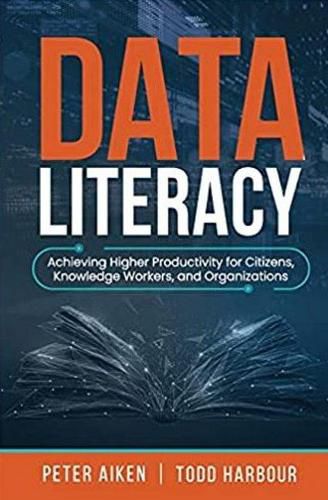Readings Newsletter
Become a Readings Member to make your shopping experience even easier.
Sign in or sign up for free!
You’re not far away from qualifying for FREE standard shipping within Australia
You’ve qualified for FREE standard shipping within Australia
The cart is loading…






This title is printed to order. This book may have been self-published. If so, we cannot guarantee the quality of the content. In the main most books will have gone through the editing process however some may not. We therefore suggest that you be aware of this before ordering this book. If in doubt check either the author or publisher’s details as we are unable to accept any returns unless they are faulty. Please contact us if you have any questions.
Do you know what a PIDD is? A PIDD is a Perpetual Involuntary Data Doner. Surveillance capitalists love PIDDs because PIDDs materially support the data extraction industry by unwittingly surrendering their personal information, paying for data transport and storage, and tolerating poor Internet/technology performance. Today, this quiet industry collects massive data about people to modify and control their societal behavior. Surveillance capitalists control behavior by exploiting people’s low data literacy. Three things increase the magnitude of the challenge: Data volume continues faster than we can process; Poor data interchange costs drain citizen and organizational resources and productivity; Society’s reliance on technologies has not materially addressed the gap. Our Digital Civics Framework (DCF) presents a guide to increasing the data literacy of billions of citizens or at least those connected to the internet. We outline the levels and types of data knowledge that society needs and propose exercises that will help citizens interact productively within a data-driven society. Unfortunately, far too many PIDDs allow surveillance capitalists to monitor their data. This type of monitoring comes at an expense to individuals, our communities, and society writ large. Completing this material will equip readers with a shared understanding of society and the role data plays in it.
$9.00 standard shipping within Australia
FREE standard shipping within Australia for orders over $100.00
Express & International shipping calculated at checkout
This title is printed to order. This book may have been self-published. If so, we cannot guarantee the quality of the content. In the main most books will have gone through the editing process however some may not. We therefore suggest that you be aware of this before ordering this book. If in doubt check either the author or publisher’s details as we are unable to accept any returns unless they are faulty. Please contact us if you have any questions.
Do you know what a PIDD is? A PIDD is a Perpetual Involuntary Data Doner. Surveillance capitalists love PIDDs because PIDDs materially support the data extraction industry by unwittingly surrendering their personal information, paying for data transport and storage, and tolerating poor Internet/technology performance. Today, this quiet industry collects massive data about people to modify and control their societal behavior. Surveillance capitalists control behavior by exploiting people’s low data literacy. Three things increase the magnitude of the challenge: Data volume continues faster than we can process; Poor data interchange costs drain citizen and organizational resources and productivity; Society’s reliance on technologies has not materially addressed the gap. Our Digital Civics Framework (DCF) presents a guide to increasing the data literacy of billions of citizens or at least those connected to the internet. We outline the levels and types of data knowledge that society needs and propose exercises that will help citizens interact productively within a data-driven society. Unfortunately, far too many PIDDs allow surveillance capitalists to monitor their data. This type of monitoring comes at an expense to individuals, our communities, and society writ large. Completing this material will equip readers with a shared understanding of society and the role data plays in it.